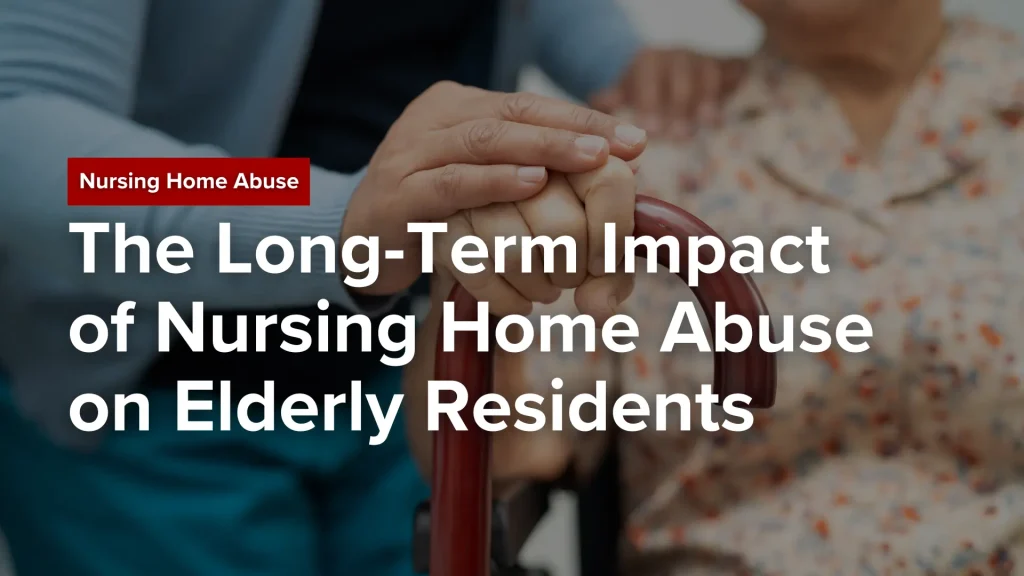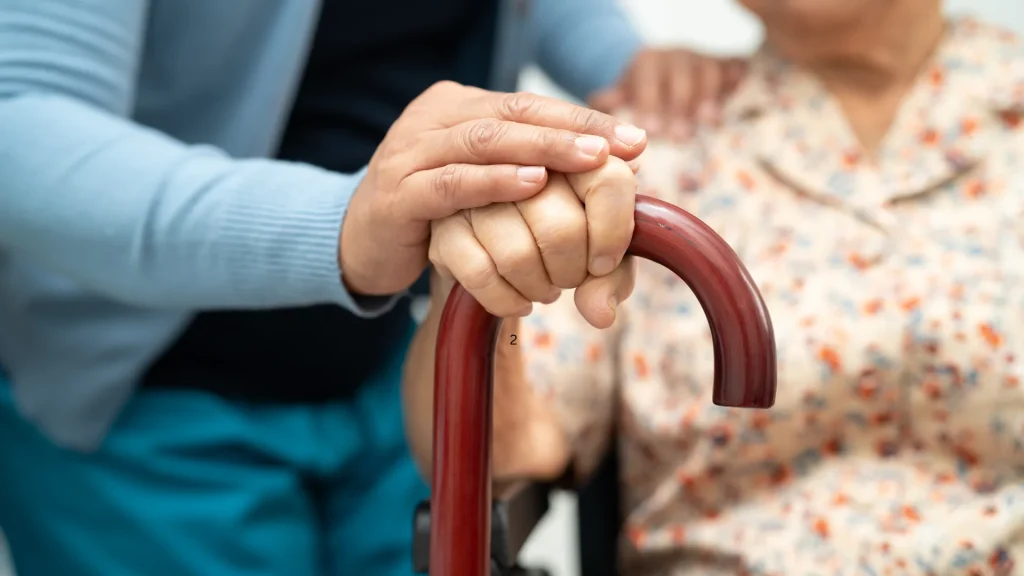
Nursing homes are meant to be safe havens where older adults receive compassionate care in their golden years. Unfortunately, abuse and neglect in long-term care facilities can have devastating and far-reaching consequences for nursing home residents. What do you do if you notice long-term effects of nursing home abuse?
For families in Chicago, Illinois, understanding the implications of such abuse is crucial in safeguarding their loved one’s well-being and holding negligent facilities accountable. The long-term effects of nursing home abuse often extend beyond physical injuries, leaving deep emotional scars and diminishing the overall quality of life for victims.
What Is Elder Abuse?
Elder abuse encompasses various forms of mistreatment that older adults may face in nursing homes and other care facilities. According to the National Center on Elder Abuse (NCEA), elder abuse includes:
- Physical abuse: Intentional harm such as hitting, shoving, or forceful use of restraints.
- Emotional abuse: Verbal assaults, threats, or behaviors that cause psychological distress.
- Sexual abuse: Non-consensual sexual contact or exploitation.
- Financial abuse: Theft or manipulation of an elder’s financial resources.
- Neglect: Failure by nursing home staff to provide adequate care, resulting in harm to the resident.
These forms of nursing home abuse and neglect often go unreported, leaving victims vulnerable to prolonged harm and its long-term consequences.
Laws on Elder Abuse in Chicago, IL
Laws against elder abuse have been designed to protect older adults from abuse. The Elder Abuse and Neglect Act requires mandatory reporting from professionals like healthcare providers, law enforcement, and social workers if they suspect abuse. Nursing homes are also regulated by both state and federal laws, including the Nursing Home Care Act, which ensures residents’ rights to safety, dignity, and quality care.
Additionally, Illinois law allows victims and their families to file civil lawsuits for damages resulting from abuse or neglect. These legal measures aim to secure justice for victims while encouraging better practices in long-term care facilities. For families in Chicago, understanding these legal protections is vital in advocating for their loved ones’ well-being.
Signs Your Loved One Has Been Abused
Recognizing the signs of abuse is the first step in protecting your loved one. While some indicators are more obvious than others, families must remain vigilant for subtle changes in behavior or health.
Common signs include:
Physical Signs
- Unexplained injuries, such as bruises, fractures, or burns
- Frequent falls or hospitalizations
- Bedsores or untreated infections
- Signs of malnutrition or dehydration
Emotional and Behavioral Signs
- Increased anxiety, depression, or withdrawal
- Sudden changes in mood or personality
- Fearfulness around specific staff members
- Reluctance to communicate openly about their experiences
Financial Indicators
- Unexplained withdrawals or financial discrepancies
- Missing valuables or changes to legal documents
- Complaints about bills being unpaid despite sufficient funds
If you notice any of these red flags, it is critical to take immediate action to protect your loved one and investigate further.
Steps to Take
When you suspect abuse or neglect in a nursing home, it’s crucial to act swiftly and decisively. Immediate action can make all the difference in ensuring the safety of your loved one and holding those responsible accountable.
Document Your Observations
Keep detailed records of physical injuries, behavioral changes, or financial irregularities and report them to the necessary authorities. Speak extensively to the police to have a “paper trail” of reports. Maintain a detailed log of any concerning incidents or conversations with nursing home staff.
Speak with Nursing Home Administrators
Report your concerns to the nursing home’s management and request an immediate investigation. Ensure you document your communication and any steps the facility claims to have taken. Do not hesitate to take photos and videos to secure your claim and demonstrate your evidence. Turn over all evidence to your attorney as you secure it.
Remove Your Loved One (if Necessary)
If the abuse or neglect is severe, relocate your loved one to another facility or arrange temporary care elsewhere to ensure their immediate safety. This is, perhaps, the most important thing you can do, as your loved one’s life must be preserved at all costs.
File a Complaint with State Authorities
File a complaint with the Illinois Department of Public Health (IDPH). This will initiate an official investigation into the facility’s practices.
Consult an Attorney
Navigating the legal complexities of elder abuse cases requires professional guidance. Speaking with an experienced elder abuse attorney can help you understand your rights, gather evidence, and seek justice for your loved one.
What an Elder Abuse Attorney Can Do For You

Elder abuse cases are emotionally and legally complex, but an attorney specializing in abuse in long-term care facilities can provide invaluable support. Here’s how:
- Investigating Claims: When an elder abuse attorney is hired, he or she will thoroughly investigate the allegations, gathering medical records, witness statements, and other evidence to build a strong case.
- Holding Negligent Parties Accountable: Whether the abuse resulted fro`m individual staff members or systemic issues within the facility, your attorney will identify the responsible parties and pursue legal action against them.
- Securing Compensation: Victims of nursing home abuse may be entitled to compensation for medical expenses, emotional distress, and diminished quality of life. An attorney will fight to ensure you receive the justice and financial relief you deserve.
- Advocating for Systemic Change: Beyond seeking justice for your loved one, pursuing legal action can help drive improvements in the nursing home industry, preventing future abuse and neglect of others.
Hire an Attorney at Karlin, Fleisher & Falkenberg, LLC to Handle Your Elder Abuse Claim
The long-term effects of nursing home abuse are far-reaching, and they have an impact on the physical, emotional, and financial well-being of victims. For families in Chicago, understanding the signs of abuse, taking prompt action, and seeking professional legal support are critical steps in addressing this pervasive issue.
If you suspect that your loved one has been a victim of nursing home abuse, call the experienced Chicago elder abuse attorneys of Karlin, Fleisher & Falkenberg, LLC today at 312-346-8620 or contact us online for a free consultation. Our attorneys have the legal knowledge and proven record of success to handle your case. We can help you hold negligent facilities accountable and ensure that your loved ones or family members receive the care, dignity, and justice they deserve.
